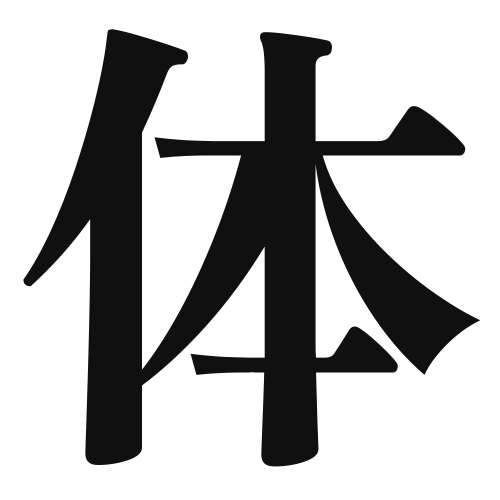1. Overview of Meaning
The kanji “体” (tai) means “body” or “form.” It refers to the physical structure of a living being, encompassing both the human body and the bodies of animals. It can also imply the concept of a system or organization in a broader sense.
2. Formation and Radical
Formation of the Kanji: The kanji “体” is a compound character that combines the elements of “人” (person) and “本” (origin or root). It represents the idea of a person’s physical form or body.
Radical: The radical for “体” is “亻” (the person radical), which indicates that the character is related to human beings.
3. Examples of Usage
Common Words and Phrases: Some frequently used words that include “体” are:
- 身体 (sh身体, “body”)
- 体調 (taichou, “physical condition”)
- 体験 (taiken, “experience”)
Example Sentences in Daily Conversation:
- 最近、体調が悪いです。 (Saikin, taichou ga warui desu.) – “Recently, I have not been feeling well.”
- 運動は体に良いです。 (Undou wa karada ni yoi desu.) – “Exercise is good for the body.”
4. Synonyms and Antonyms
Similar Kanji: A similar kanji is “身” (mi), which also means “body” but often refers to the self or one’s own person in a more abstract sense.
Antonyms: An antonym for “体” could be “心” (kokoro), which means “heart” or “mind,” representing the non-physical aspects of a person.
5. Cultural and Historical Background
Relation to Japanese Culture: The concept of “体” is significant in Japanese culture, where physical health and well-being are highly valued. Traditional practices like martial arts and tea ceremonies emphasize the harmony between body and mind.
Proverbs and Idioms: One common saying is “健康は富に勝る” (Kenkou wa tomi ni masaru), which translates to “Health is more valuable than wealth,” highlighting the importance of the body in overall well-being.
